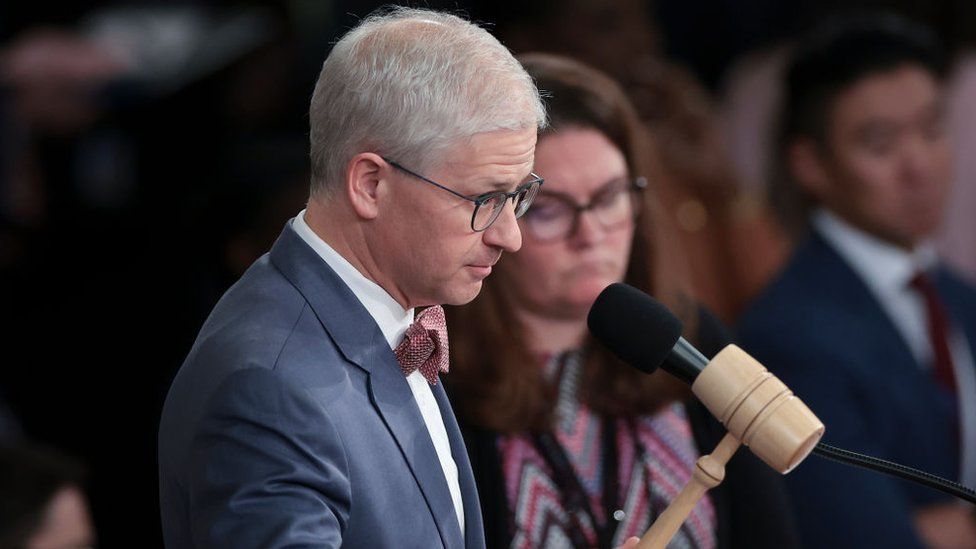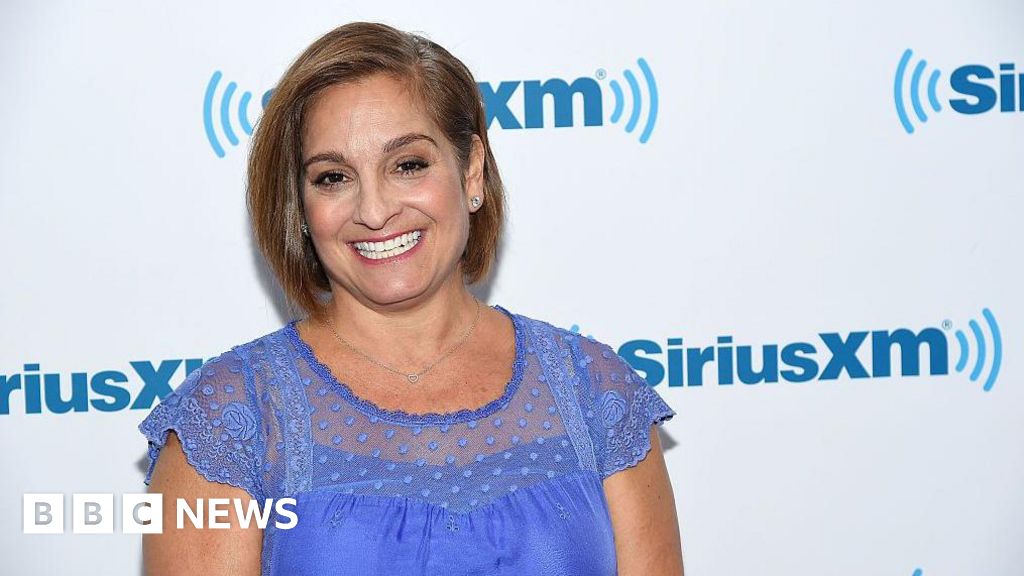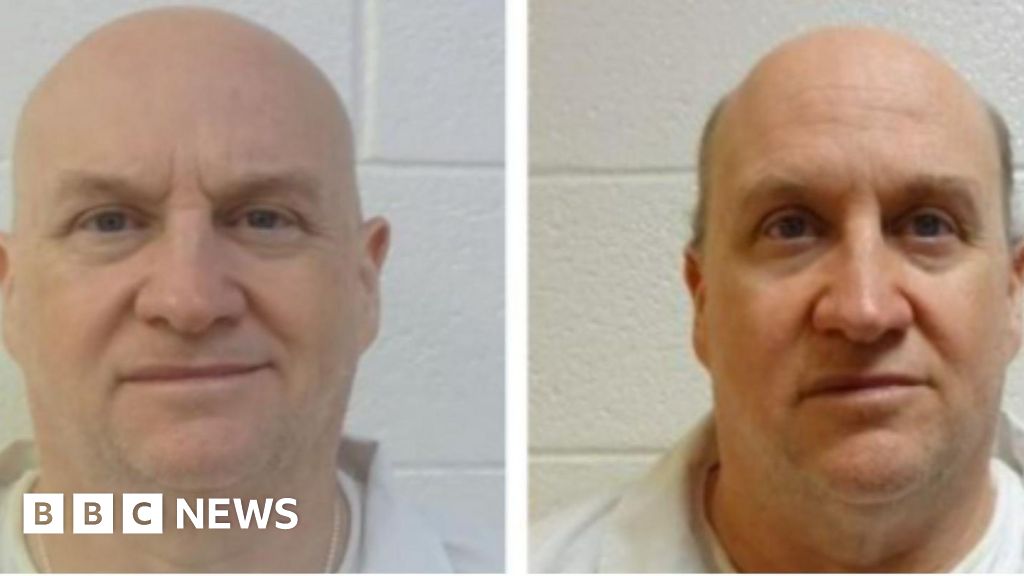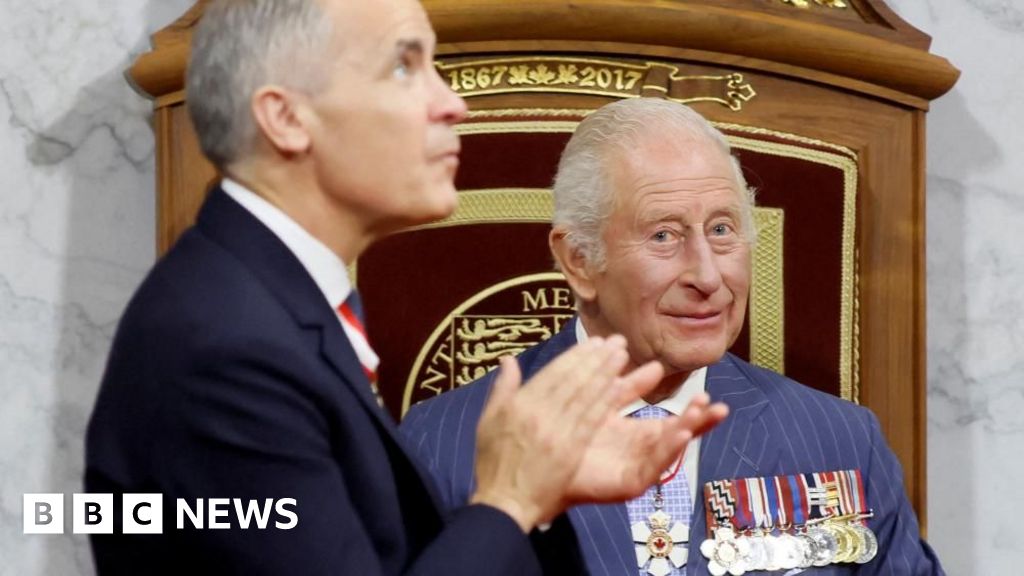ARTICLE AD BOX
 Image source, Getty Images
Image source, Getty Images
By Mike Wendling
BBC News
With consensus proving elusive, reports indicate that some Republican lawmakers support a plan to let temporary House Speaker Patrick McHenry stay in the post.
Members of both parties have now focused attention on the Speaker pro tempore, a bow-tied, bespectacled career politician from North Carolina who has been holding the post since former Speaker Kevin McCarthy was ousted.
But like nearly everything during the current leadership crisis in the House of Representatives, the details of the plan are still highly uncertain.
So far the most notable thing Mr McHenry has done with the Speaker's gavel in his hand was to slam it down very hard right after Mr McCarthy's ouster - a moment that went viral.
Since that hammer blow, he's stuck to a perfunctory routine of opening House proceedings, then almost immediately closing them, while in the background the Republican delegation has struggled to unite behind a new House leader.
Mr McHenry, who turns 48 on Sunday, was the youngest member of the House when first elected in 2004.
His Congressional career began after stints in the North Carolina state legislature, working for George W Bush's presidential campaign and running an anti-Hillary Clinton website.
As a member from a heavily Republican district, he developed a reputation for being a staunch conservative, unafraid of challenging party leadership, and rose to become chair of the House Financial Services Committee.
His official bio says his interest in finance started in childhood, when his father attempted to grow a small business but struggled to raise capital.
Crucially, Mr McHenry is also an ally of Mr McCarthy - which may complicate efforts to keep him in the Speaker's chair.
When Mr McCarthy was selected in January after 15 laborious rounds of voting, he chose Mr McHenry to be his temporary replacement in the event of incapacitation or - as turned out to be the case - removal from post.
New Speakers are required to provide a secret list of chosen successors, as part of post-9/11 rules drawn up to ensure government continuity in the event of a disaster or attack.
But Mr McHenry was more than just a designated survivor. He also helped negotiate the debt limit compromise deal with Democrats that proved to be the last straw for Mr McCarthy's opponents.
Some Republicans have argued for expanding Mr McHenry's powers, but how exactly he would use those powers is a big question.
It is also far from certain that such a plan has enough support, and even Mr McHenry himself has come out against it.
Writing in the New York Times, Republican consultant Brendan Buck suggested a way out of the turmoil: Mr McHenry should just start acting more like a permanent House Speaker, and see if other members try to stop him.
"House Republicans may not deserve a leader like Mr McHenry, but they're fortunate to have him. He is a serious person, widely respected for his honesty and intellect," Mr Buck wrote.
Mr Buck argued there is nothing stopping the Speaker pro tempore from performing normal legislative duties, like recognising members for motions to propose legislation. If Mr McHenry began to do that, he wrote, it would be up to House members to object or come up with an alternative plan.
Among those who may welcome such a bold move is Representative Mike Lawler of New York, who earlier this year credited Mr McHenry with saving his 15-month-old daughter when she started choking on her food.
"We had a little bit of an incident, but she's OK," Mr Lawler told a podcast. "So I want to thank Patrick. He's a good friend and colleague."
With the House now facing a little bit of an incident of its own, expect to see much more of Mr McHenry - and his bow ties.

 1 year ago
38
1 year ago
38








 English (US) ·
English (US) ·